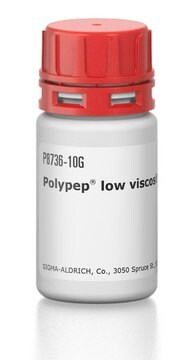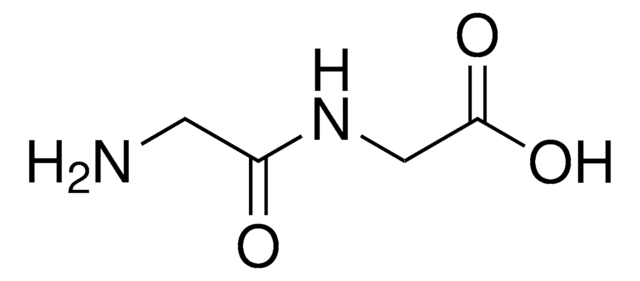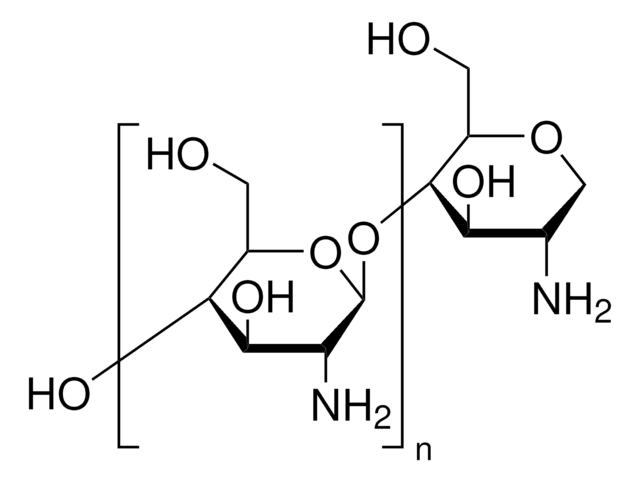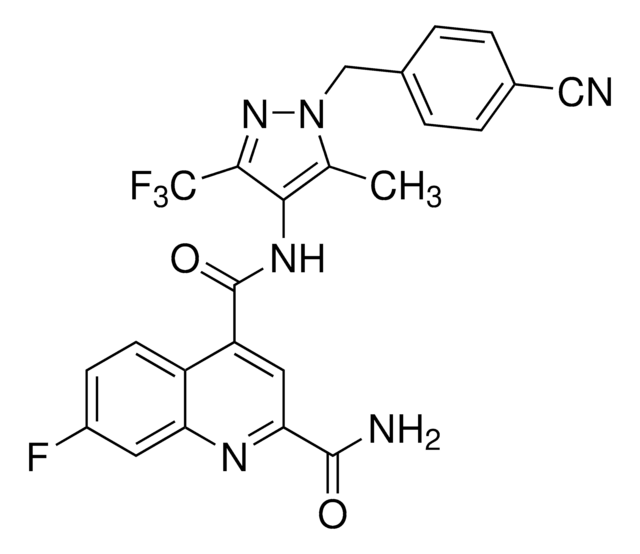P5115
Polypep® Low Viscosity
histochemical stabilizer
Synonym(s):
Low Viscosity Polypeptide, Polypep Solution
Sign Into View Organizational & Contract Pricing
All Photos(3)
About This Item
UNSPSC Code:
12352204
NACRES:
NA.83
Recommended Products
Quality Level
form
powder
General description
A proprietary protein digest that provides increased stablization of tissue sections in histochemical studies.
Application
Polypep® Low Viscosity has been used as a component of substrate incubation medium to act as a section stabilizer. It has also been used for enzyme cytochemistry.
Legal Information
Polypep is a registered trademark of Merck KGaA, Darmstadt, Germany
Storage Class Code
11 - Combustible Solids
WGK
WGK 3
Flash Point(F)
Not applicable
Flash Point(C)
Not applicable
Personal Protective Equipment
dust mask type N95 (US), Eyeshields, Gloves
Choose from one of the most recent versions:
Already Own This Product?
Find documentation for the products that you have recently purchased in the Document Library.
A A Pitsillides et al.
Journal of bone and mineral research : the official journal of the American Society for Bone and Mineral Research, 14(6), 980-987 (1999-06-03)
Bone's functional competence is established and maintained, at least partly, by mechanisms involving appropriate adaptation to mechanical loading. These appear to fail in chickens selectively bred either for maximum egg (Egg-type) or meat (Meat-type) production, which show high rates of
Lysosomal membrane stability in mussels.
Martinez GC, et al.
ICES Journal of Marine Science (2015)
Bivalve immunity: comparisons between the marine mussel (Mytilus edulis), the edible cockle (Cerastoderma edule) and the razor-shell (Ensis siliqua)
Wootton EC, et al.
Fish & Shellfish Immunology, 15(3), 195-210 (2003)
Simon C F Rawlinson et al.
Bone, 45(2), 357-366 (2009-05-05)
Bone strength is, in part, dependent on a mechanical input that regulates the (re)modelling of skeletal elements to an appropriate size and architecture to resist fracture during habitual use. The rate of longitudinal bone growth in juveniles can also affect
Maes Thomas et al.
Heliyon, 6(1), e03103-e03103 (2020-01-08)
Bivalve filter feeders, such as oysters, filter large volumes of water and are particularly exposed to microplastics (MP). Consequently, these animals digest and assimilate high levels of MP in their bodies that may likely impact their physiology, and potentially affect
Our team of scientists has experience in all areas of research including Life Science, Material Science, Chemical Synthesis, Chromatography, Analytical and many others.
Contact Technical Service







